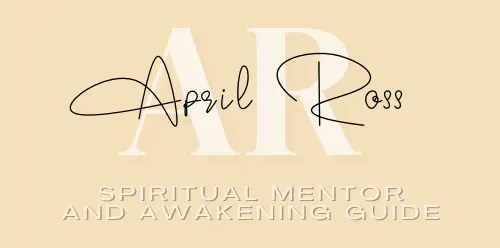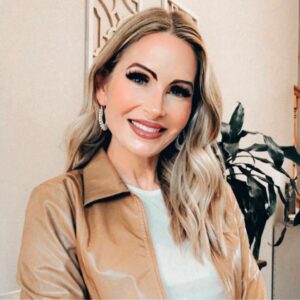“People-pleasers are often tormented by a conflict between the needs and wants of others versus those of themselves. If you aim to please others, you tend to disregard your own needs and instead prioritize the needs of others, which eventually becomes a self-destructive pattern.” ~Patrick King
Why is it that some of us develop a propensity to abandon ourselves at the expense of others?
While others only think of themselves?
Why is it that we are taught, especially women, that the more you self-sacrifice, the better of a person you are?
The answer is not as simple as one might think. To uncover it, we must go back to the past.
Uncovering the origins of my people-pleasing tendencies and other unhealthy behaviors took some time. Throughout most of my life, I viewed myself as a good person with a genuine heart, someone who enjoyed helping others, caring for my family, and showing my affection by going above and beyond for others. I’d often overextend myself, saying ‘yes’ to favors others had asked me to do, when I really didn’t have the desire to do them. I worried that if I said ‘no’ or if I turned someone down, others would see me as unhelpful, uncaring, or selfish.
(All conditioned thought patterns.)

I’d even go so far as to say that I would feel guilty when saying ‘no,’ almost as if I wasn’t allowed to. It felt wrong to say ‘no’, even though I knew other people who did. For some reason, I held myself to a different set of standards. Not only that, but I harshly judged myself… thinking that others were going to think less of me if I said I couldn’t help. Suddenly, I would no longer be the kind, generous person they had grown to know.
It wasn’t until the unraveling of my first marriage and the onset of my spiritual awakening that I started diving into my past to discover where my self-abandonment came from and how it was actually not serving me or anyone else in a positive way. The first of these two events led me to begin intensive therapy, which is where I uncovered the root cause of my unhealthy people pleasing behaviors: childhood enmeshment. [see video below to learn more]
Prior to beginning this work, the invisible line between myself and another was so blurred that I could barely distinguish who I was and what my own needs were apart from those I loved. I felt responsible for the well-being of others and for solving their problems. I felt responsible for their pain or their emotional discomfort and would try to relieve this pain by doing nice things for them, often overcompensating for my own desire to have someone do this for me.
I grew up in an environment where emotional boundaries didn’t exist and where I was conditioned to prioritize my caretaker’s needs above my own. This upbringing trained me to ignore my own needs, believing that love was earned. I learned to suppress my own emotions and needs in an effort to keep the peace and to emotionally support my caretaker. My parent’s well being and stability became the priority.
“As a people-pleaser, your perceptual antennae are attuned to the needs, preferences, desires, requests, and expectations of others. The psychological ‘volume’ of other people’s needs is turned up high, while the relative volume of your own needs is nearly muted altogether.” ~Harriet B. Braiker
This was a recipe for disaster. Not only did I lose touch with myself and my own needs, but I also became incredibly miserable and exhausted. I was working so hard to gain love and appreciation from everyone else that I forgot to love myself in the process. I neglected my time, energy, and emotional needs at the expense of others and became resentful when those in my closest circle didn’t reciprocate the same care and attention that I did.
If you can relate, then chances are you grew up in similar circumstances and learned this survival skill as well. Whether you are on the road to breaking these people-pleasing habits or perhaps just beginning, allow me to share some tips that helped me heal my inner people pleaser once and for all.

1.Reclaim Your Autonomy
First, we must reclaim our autonomy by putting ourselves first. This is going to feel very uncomfortable at first, because it goes against the way you have been conditioned to survive.
You will need to stop outsourcing your power to other people. And you will need to stop overinvesting in others at your own expense. One of the best ways to do that is to say ‘no’ more often. Not just ‘no’ for the sake of saying ‘no’, but no when giving feels like a burden or feels like it is taking away your ability to pour into yourself. Rather than helping other people solve their problems, or helping other people do things they could be doing for themselves, reframe your focus and attention on yourself and your own needs. Ask yourself, What is my responsibility to myself right now? Or.. what is it that I really need right now?
Do I need rest? Do I need quiet? Do I need support? Do I need play?
And then, listen inside for the answer. Listen to your body, your heart, your inner child. They will tell you.
2.Set Boundaries Around Your Time and Needs
As a recovering people pleaser, you most likely grew up in an environment where there weren’t any boundaries between yourself and your caretaker. You were never given permission to say ‘no’ or to put yourself first. Your existence was to help someone else feel comfortable. Therefore, as an adult you struggle to put healthy boundaries in place. Boundaries around your time, your energy, your emotional needs, etc. You may forget to check in with yourself before committing to someone else’s requests, or before stepping in to help someone with a problem, especially if that person makes it seem like an emergency.
So, what does it look like to set a boundary around your time?
Setting a boundary around your time means that you organize your day based on YOUR needs, not someone else’s. That you wake up in the morning and you think to yourself, What would be good for ME today? You prioritize your time and your schedule around things that give you energy, make you feel good, help you move forward with your goals and plans, or take care of your own needs and obligations. And, then, once you are clear on how you want your day to look, you can say yes or no to someone else’s invitation or request based on whether or not it allows you to do what you need to do for yourself. If saying yes to something gives you anxiety, pressure in your chest, or stress, then that is your body’s way of telling you NO.

3. Rewire Your Brain
Next, because we recovering people pleasers were conditioned as children to set our own needs aside and to think of others first, we must now rewire our brains to see our needs as equally or more important to those of another. We must also seek other ways to connect with people that don’t involve helping them. Changing these deeply-ingrained patterns can be difficult. Depending on the severity of your emotional trauma, it may be necessary to work with a professional. In addition to doing brain spotting and EMDR, the exercises that helped me the most were EFT Tapping, hypnosis, and meditation. These healing exercises allow you to go into the underlying layers of your subconscious to connect with your inner child, helping him/her to feel seen, understood, and comforted and freeing your adult self from the burdens that he/she never should have had to carry.
4. Incorporate Regular Self-love Practices
Finally, your tendency to focus outward will need to be counterbalanced with a focus inward. Incorporating regular self-love practices is one way to do this. Here, we are not talking about self-care. We are talking about choice and actions that create a deep love of self. Let’s examine what that might look like.
One, you consider your well-being first and foremost. This includes your mental, emotional, physical, and spiritual well-being. If someone is causing you to feel anxious, stressed, chaotic, confused, underappreciated, or disrespected, you make a choice to remove yourself or to limit contact with that person. Or, you make a choice to voice your feelings and your needs. But you do not, I repeat, you do not continue placing yourself in circles where your well-being is under attack. This is difficult, I know, because sometimes it means distancing yourself from your own family. Sometimes it means being rejected by those who only valued you when you were meeting their needs.
Two, you listen to your body and your inner voice before making any decision. Because you deeply love and honor yourself, you will not allow yourself to make a decision that could potentially have a negative consequence on your mental, emotional, or physical state. This requires that you check in with yourself for a few minutes each day, whether that is in silence, on a drive, or outside in nature. You give yourself the spaciousness you need in order to discern the best course of action, and whatever you decide, you decide it out of love for yourself, not out of obligation to another.
While there’s so much more we could dive into on this subject, I hope what we’ve covered here serves as a foundation for you to begin healing from your people-pleasing tendencies and to embrace self-love instead. Remember, you weren’t responsible for the environment you grew up in where your needs may have been overlooked or where you felt burdened to take care of others. However, today, you have the power to choose the person you wish to become and, most importantly, to choose yourself.
Once you heal and you no longer seek love through performance, the behaviors you once used to survive will fall away. You will learn to discern who genuinely loves and cares for you, who reciprocates your generosity and empathy, and who only values you because of what you can do for them.
As you undergo this process of healing, I wish for you the strength and courage to gradually reclaim your power and to re-focus all that love, energy, and attention you so generously offer to others inward instead.
I wish for you the strength and the courage to begin exerting yourself and your needs, implementing these steps day by day, until you no longer feel responsible for anyone else’s well-being, except your own.
In honoring yourself first, you are teaching others how to love you better and you are teaching others how to love themselves better. And isn’t that what we are here to do?
Be patient with yourself during this process. It takes time to release yourself from the grip of your past, but you are capable of doing it. I believe in you.
I wish you all the best.
Much love. ♥
© 2025 Divine Soul Guidance
Recommended Resources:
- 19 Reasons We Become People Pleasers: https://youtu.be/F-phWTIB9bg?si=fP4vA8dYbtaq5dHU
- How to Heal Family Enmeshment Trauma: https://youtu.be/0tl-7A3NdV8?si=ttheY_7Q2aHd9UmE


 orker, and spiritual mentor who guides others on their awakening journey to heal from unhealthy patterns and behaviors, free themselves from the past, and step into becoming their most authentic, aligned selves. She is the author of Bravely Becoming © 2021 and the course creator of Soul Awakened, a step-by-step guide to navigating the awakening process.
orker, and spiritual mentor who guides others on their awakening journey to heal from unhealthy patterns and behaviors, free themselves from the past, and step into becoming their most authentic, aligned selves. She is the author of Bravely Becoming © 2021 and the course creator of Soul Awakened, a step-by-step guide to navigating the awakening process.
